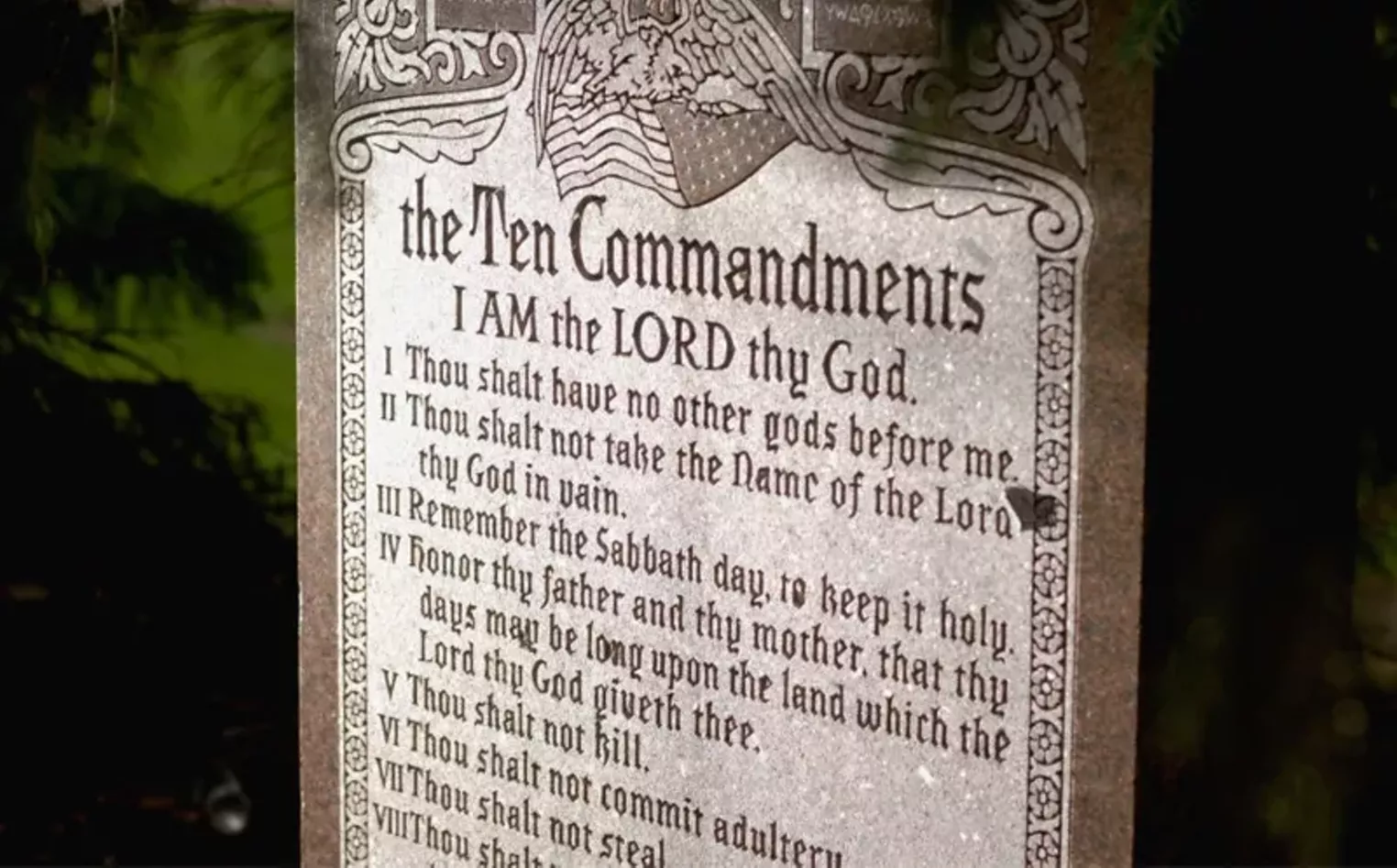Public school teachers in 11 Texas districts, including three in the Greater Houston area, are blocked from displaying the Ten Commandments in every classroom despite a state law passed in June, a federal judge ruled Wednesday.
U.S. District Judge Fred Biery issued a preliminary injunction Wednesday in the case of Rabbi Nathan v. Alamo Heights Independent School District. Districts named as defendants in the suit include Houston, Fort Bend, and Cypress-Fairbanks ISDs.
In the 55-page ruling, Biery said that children can be cruel to their classmates perceived to be “the other” and that Senate Bill 10, approved by the Texas Legislature earlier this year, crosses the line from exposure to coercion.
“Ultimately, in matters of conscience, faith, beliefs, and the soul, most people are Garbo-esque,” Biery wrote, referring to the 1930s film actress Greta Garbo. “They just want to be left alone, neither proselytized nor ostracized, including what occurs to their children in government-run schools. Even though the Ten Commandments would not be affirmatively taught, the captive audience of students likely would have questions, which teachers would feel compelled to answer. That is what they do.”
“Teenage boys, being the curious hormonally driven creatures they are, might ask: ‘Mrs. Walker, I know about lying and I love my parents, but how do I do adultery?’ Truly an awkward moment for overworked and underpaid educators, who already have to deal with sex education issues,” the judge added in his ruling.
The controversial Senate Bill 10, introduced by Sen. Phil King, R-Weatherford, was signed into law in late June, after the 5th U.S. The Circuit Court of Appeals deemed it “plainly unconstitutional.” It requires that the scripture be displayed on a donated 16-by-20 poster. It was expected to prompt legal challenges, and plaintiffs in the case say they hope other Texas school districts will be blocked from implementing the law.
SB 10 is scheduled to go into effect on September 1. Biery said the issue of religious coercion in schools could ultimately be decided by the U.S. Supreme Court.
“As a rabbi and public school parent, I welcome this ruling,” said plaintiff Rabbi Mara Nathan in a public statement. “Children’s religious beliefs should be instilled by parents and faith communities, not politicians and public schools.”
The decision affirms that Texas families, not politicians or public school officials, get to decide how and when their children engage with religion, said Rachel Laser, president and CEO of Americans United for Separation of Church and State.
Supporters of SB 10 have said that the Ten Commandments and Christian teachings are vital to understanding U.S. history.
The plaintiffs — a group of Christian, Jewish, Hindu, Unitarian Universalist, and nonreligious families, including clergy, with children in public schools — were represented by the American Civil Liberties Union of Texas, Americans United for Separation of Church and State, and the Freedom from Religion Foundation.
“It violates the Constitution’s promise of religious freedom and church-state separation,” the plaintiffs said of SB 10 in a statement. “Public schools are not Sunday schools.”
